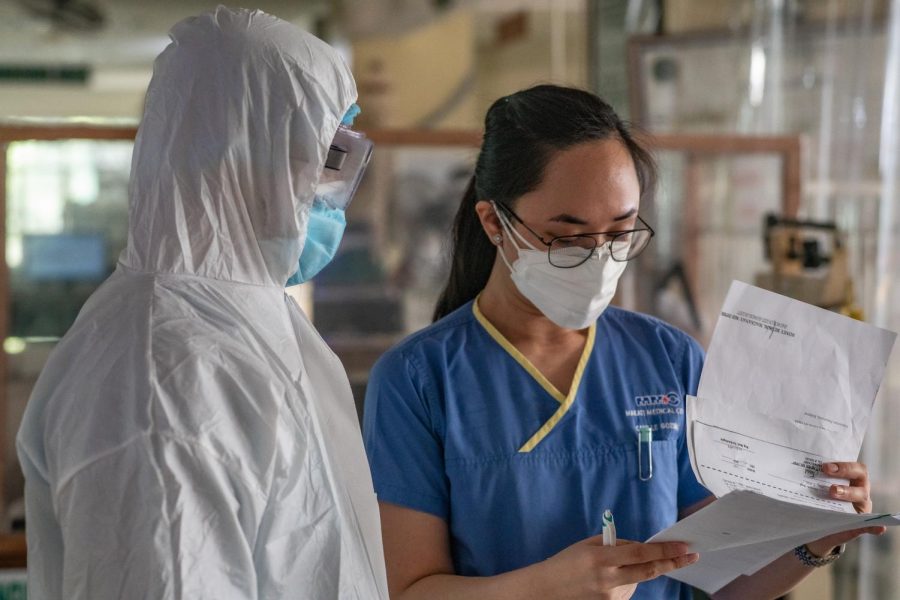CDC announces new rating level and mask guidelines
By flickr.com/photos/asiandevelopmentbank/49932684652
The Centers for Disease Control recently released new mask guidelines as well as a rating guide for COVID-19 risk levels.
March 29, 2022
As the COVID-19 pandemic evolves, so have the guidelines for mask wearing. According to the United States Centers for Disease Control and Prevention, more than 90 percent of people in the U.S. live in areas where masks are not needed indoors.
The CDC has a new framework that determines counties’ COVID-19 levels by low, medium or high. This is measured by hospital capacities, new cases and hospitalizations.
According to www.cdc.gov, a low community level means to wear a mask based on your personal preferences and level of risk. Individuals living in a county at a medium level should wear a mask if they are at risk for severe illness or if they live with someone at risk for severe illness. About 90 percent of counties have a medium or low rating.
For those who prefer to continue masking indoors, it is recommended to stay up-to-date on vaccinations.
According to the CDC, breakthrough infections in vaccinated people are likely to occur, but they are less likely to develop serious symptoms compared to the unvaccinated. Receiving the booster shot helps boost your immune system in fighting against COVID-19. “Immune response only lasts for so long,” April Lehrling, Director of Student Wellness Services at Southeastern Oklahoma State University stated. “Over the course of time, we see that our immunity to things starts to wane or starts to deplete in some way.”
Dr. Diane Dixon, Professor and Department Chair of Biological Sciences at Southeastern, said the antibodies from a vaccine won’t last forever. “By getting a booster, you are stimulating your immune system to make more antibodies to protect you,” Dr. Dixon said. “Every time your immune system gets stimulated, it makes more antibodies than it did the last time.”
Some question how since measures, such as the mask mandate, that are in place have reduced whether this pandemic is in its end stages. Lehrling evaluated that according to the federal
“At some point, we have to figure out how we’re gonna live with the virus as a normal part of our lives from here on out,” Lehrling stated. “We’re in that stage of a global pandemic where we’re shifting from ‘It’s no longer a pandemic, it’s no longer new.’ Our body recognizes it, and it’s still mutating, but at some point, it’s going to mutate similar to the flu where we’re just gonna have to adopt practices and procedures in an ongoing way.”
As a result, there could be things that people have learned from during this pandemic that will likely be part of a day-to-day practice, like wearing your mask when you do not feel well or deciding to keep distance between you and others around you.
“If you feel sick, what do you do? You put your mask on.” Lehrling said. “There may be some things that come out of this that may change our lives moving forward. There may be things that are here to stay – they’re not necessarily a bad thing. It may change how we practice in our day-to-day lives.”


